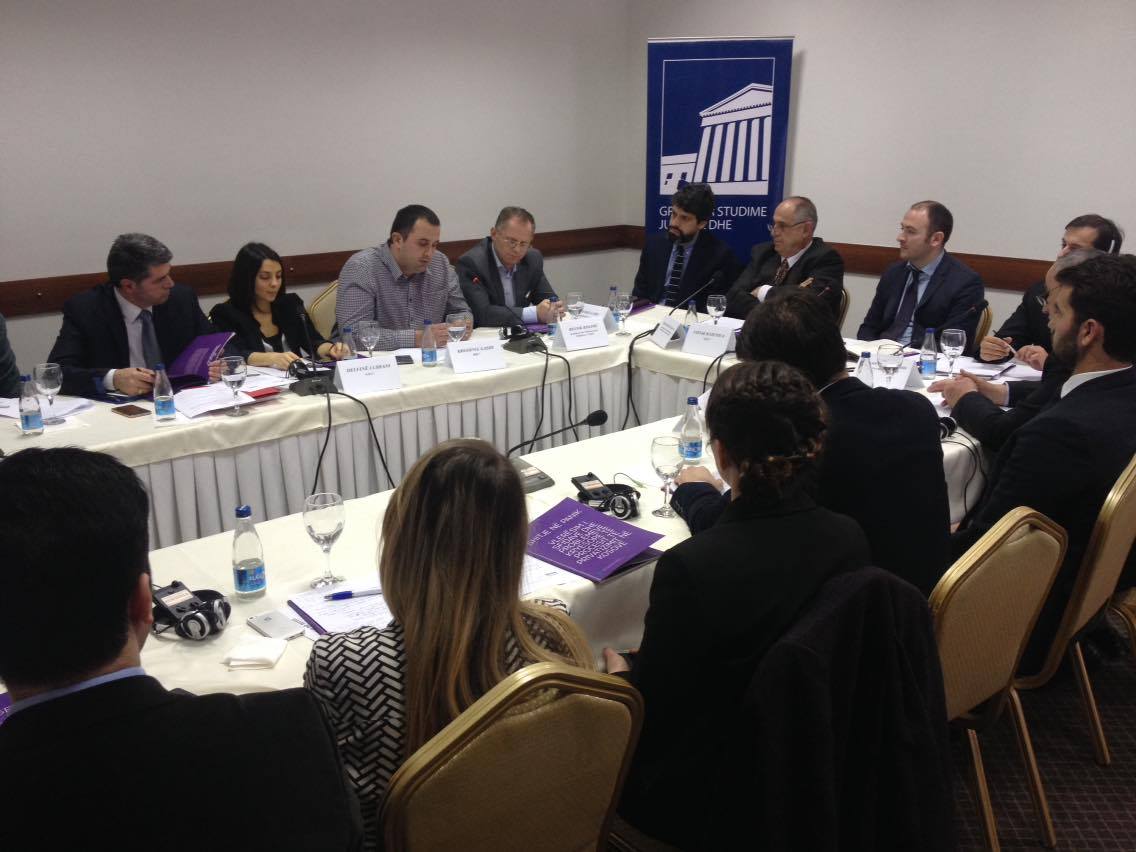On 11 February 2016, Group for Legal and Political Studies (GLPS) and Balkan Investigative Reporting Network (BIRN) hosted a Panel Discussion on the topic: “The Privatization Process in Kosovo: an assessment of the main challenges and problems”, held at Hotel Sirius. The aim of this Panel was to discuss the ultimate effect of the privatization process of SOE’s in the economy of Kosovo. The chosen process of ‘mass privatization’ as the main approach to address Kosovo’s economic challenges was not based on an in-depth analysis of the economy. At the beginning of the discussion, GLPS and BIRN presented a Policy Analysis entitled ‘Panic Selling: Assessing the Main Challenges and Deficiencies of Kosovo’s Privatization Process’, which provides an overview of the main challenges and problems encountered during the privatization process in Kosovo. More precisely, it highlights problems such as institutional dualism, ownership disputes, and methods of privatization, the negative impact on employment, highly under-priced sale of SOEs, corruption, undervalued agricultural land, non-utilization of privatization funds, and the exclusion of citizens from the privatization process. The panelists agreed that the process is perceived to not have met the expectations and has been characterized by several problems which have damaged rather than improved the production capacity of Kosovo, and therefore its economic prosperity.
“As a result of this process, more than 40,000 people have lost their jobs. What is more concerning is the fact that the majority of them are over an age of 50 and relatively old to find a new job or to re-enter the labour market. Therefore, one can conclude that the privatization process in Kosovo has resulted with more lost jobs, rather than creating new employment opportunities”, said Delfinë Elshani, co-author of the Analysis.
This Analysis offers a range of policy recommendations which, if seriously taken into consideration by relevant institutions, would result in the improvement of the privatization process. To access the Analysis, please click here.
Panelists in attendance:
Sahit Sylejmani – President, Special Chamber of the Supreme Court of the Republic of Kosovo;
Petrit Gashi – Chairman of the Board of Directors, Privatisation Agency of Kosovo;
Nikolaos Kavallaris Ladis – Political Advisor on Dialogue Implementation – European Union Office in Kosovo/EUSR;
Mr. Muhamet Mustafa – Head of Committee for Economic Development, Infrastructure, Trade and Industry, Kosovo Assembly, LDK;
Besnik Bislimi – Head of the Oversight Committee on Public Finance, Kosovo Assembly, LVV;
Agron Demi – Executive director – GAP Institute;
Kreshnik Gashi – Editor of the “Justice in Kosovo” TV program, BIRN.
The Panel was moderated by Fisnik Korenica (GLPS) and the Analysis was presented by Delfinë Elshani (GLPS).
Venue: Hotel Sirius, Cassiopeia Hall
Share article
Latest Publications
April 24, 2024
Policy Analysis
Tracking Kosovo's Commitment: Monitoring Adherence to the Venice Commission Rule of Law Checklist in ...
April 8, 2024
Policy Analysis
Reflecting on the Third Year of Kurti II: Setbacks and Achievements in Rule of Law, Public Administr ...
March 22, 2024
Policy Analysis
Lost, “in the Twilight Zone” Rebutting the Court’s Blunder
Related Espresso Insights
March 4, 2024
Espresso.Insights
Passport Hangover: What’s next after Spain’s Kosovo breakthrough?

January 16, 2023
Espresso.Insights
Recognized but not supported: Hungary's stance on Kosovo's EU bid





